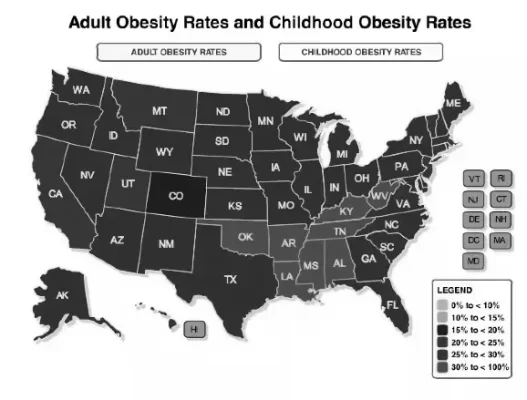Fast food is convenient and cheap. At McDonald’s, a Big Mac meal costs just $5.99. This includes a burger, fries, and a drink. It’s also fast and easy. So why do Americans eat so much fast food?
Reasons why Americans eat fast food
There are many reasons people choose to eat fast food. Some people prefer it for the convenience of the meal; others eat it to socialize with friends or family. However, fast food is not suitable for you. It is loaded with fat, sugar, and empty calories and is linked to heart disease, diabetes, and digestive problems. In addition, fast food consumption is associated with obesity and may increase cancer risk. Consequently, we should look for alternatives to fast food and encourage people to make healthier choices.
Research shows that one-third of American adults consume fast food daily. Fast food is high in calories, fat, and sodium, which are associated with increased risks for diabetes, heart disease, and obesity. Fast food is also convenient, affordable, and readily available. These are just some of the reasons why Americans eat it so much.
Fast food has become convenient, fast, and cheap for busy Americans. Many people in America are alive, and value time, so a quick bite after work is an appealing option. Besides, fast food is cheaper than grocery shopping and cooking. Moreover, preparing a meal at home takes a lot of time, which is why fast food is popular.
Fast food has taken over the food industry. Over $110 billion will be spent on fast food in the United States this year. One-quarter of American adults eat fast food at least once daily, and one in six American workers have worked for a fast-food chain. The golden arches and McDonald’s logo are so familiar that children will recognize them before their names. Fast food also contains one-quarter of the recommended vegetable servings for an average American child, and an average teenage boy consumes 10 percent of his daily calories from soda.
In addition to high fat and sugar, fast food contains many additives that can affect the brain. These additives can disrupt the hippocampus, the part of the brain that creates new neurons, thus negatively affecting memory and the ability to learn. In addition, fast food consumption is detrimental to children’s health. Too much of it can lead to heart problems and obesity, increasing the risk of certain diseases.

Fast food restaurants are often located in town, which makes them convenient for many Americans after a long day at work. It also has an affordable price tag, encouraging people to eat more often and spend less time cooking. Fast food costs about $1,200 per person per year in the U.S.
The survey also found that fast food consumption was higher among non-Hispanic blacks than whites and Hispanics. However, the percentage of fast food consumption was significantly lower among those aged 40 to 59 and those aged 60 and older.
Impact of fast food on children’s health
According to a new study, the amount of calories children and adolescents consume from fast food is increasing. The National Center for Health Statistics reported that from 2015 to 2018, fast food accounted for 13.8 percent of a child’s daily calories. This figure is even higher among Hispanic and Black kids.
Fast food has become a popular option for busy parents with nuclear families who don’t have time to prepare nutritious meals. In addition, many working parents with children are alive and stressed. Fast food has become the default option for their busy lifestyles, especially those in low-income communities. Fast food consumption is associated with obesity and heart problems related to high-calorie content.
In addition to a higher calorie intake, fast-food meals also contain added sugars. These sugars can contribute to excess weight gain and dental decay. And fast-food meals usually have large portions of soft drinks, a natural health threat for children. The highest proportion of calories in a fast-food meal comes from these drinks.
Studies have shown that children who eat fast food have an increased risk of obesity. These foods also contain high amounts of salt, sugar, and fat, which can contribute to obesity and other chronic diseases. Children who consume fast food often become overweight and may even have a higher risk of heart problems.

A recent poll conducted by the University of Michigan Health C.S. Mott Children’s Hospital found that parents of overweight or obese children are more likely to report that they often give their children fast-food meals. Moreover, children who eat fast-food meals are more likely to be overweight or obese than children who eat home-cooked meals.
In addition to being unhealthy, fast-food diets do not provide the nutrients required for physical activity. Lack of physical activity prevents children from engaging in peer groups and impairs their mental health. Children who are obese or overweight often develop depression, resulting in poor self-esteem and lower academic performance. Some children even become suicidal. In addition, children who consume junk food may have irregular sleep cycles and experience mood swings.
Fast-food meals contain calories and saturated fat and provide little fiber or other nutrients. Parents are encouraged to limit the number of fast-food items their children consume, such as fries and milkshakes. However, only one-third of parents read the nutritional labels on these fast-food items.
Fast-food diets also lack essential fatty acids, including omega-3 polyunsaturated fatty acids. These fats are necessary for cell membranes. These fatty acids are critical to the brain and retina. A lack of these essential fatty acids is also linked to increased antisocial and hyperactive behavior.
In addition to limiting the number of fast-food children eat, parents should also increase fruit intake. Increased fruit intake can improve children’s mood and reduce the risk of atopic diseases. The marketing of junk foods should also be curtailed. Instead, healthy foods should be presented in more appealing and attractive packaging.
Effects of fast food on adults’ health
The effects of fast food consumption on adults’ health are a matter of debate. Some studies have found adverse effects, while others have shown positive results. The study by Nielsen and Popkin analyzed dietary intake among adults across various age groups and the impact of fast food on metabolism. Interestingly, both studies found a higher frequency of fast food consumption among men than women.

Fast food consumption rates varied among races, sexes, and income levels. Non-Hispanic black adults were likelier to consume fast food than non-Hispanic white and Asian adults. Men were more likely to consume fast food during lunch than women. Higher-income adults consumed more fast food than lower-income adults.
Fast food is often high in calories, sodium, fat, and sugar. This combination increases the risk of Type 2 diabetes, heart disease, and obesity. Studies have shown that adults in the U.S. consumed 11.3% of their daily calorie intake from fast food. The National Center for Health Statistics published a data brief in 2013 that included data on over 10,000 adults aged 20 and over.
According to the CDC, the frequency of fast-food consumption increased with income. Lower-income adults consumed fast food on an average of 31.7% of their days, while higher-income adults consumed fast food on an average of 42.0%. While fast-food consumption increased among lower-income adults, middle-class and higher-income adults’ rates were nearly the same. The study also found no significant differences in eating patterns between men and women.
Although eating fast food may not adversely affect an adult’s health, the study found that eating fast food frequently was associated with poorer health. However, living near a fast-food restaurant did not seem to be associated with an increased risk of obesity. This study found that fast-food consumption was associated with a higher risk of heart disease, stroke, and diabetes.
Fast food has high sodium levels, worsening high blood pressure or enlarged heart muscle. It can also cause kidney stones. In addition, fast food is high-carb and can increase blood sugar levels. It also contains a high percentage of white sugar, which leads to an increased risk of obesity and diabetes.
In addition to unhealthy effects on an individual’s health, fast-food consumption can also negatively affect the built environment. This may result in obesity, poor diet quality, and poor physical condition. In addition, studies have shown that a fast-food restaurant’s proximity to a school can contribute to adolescent obesity.

